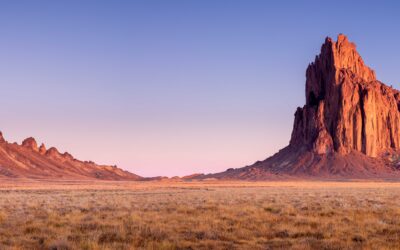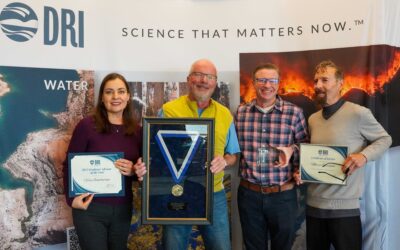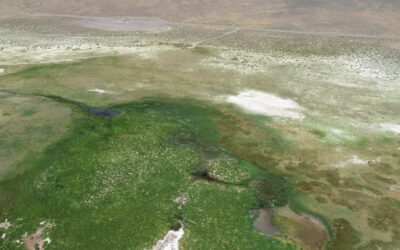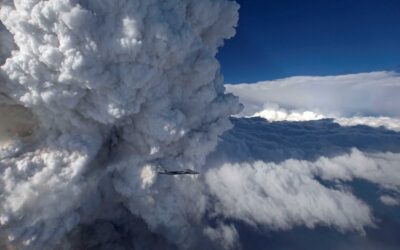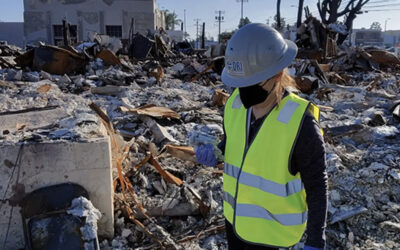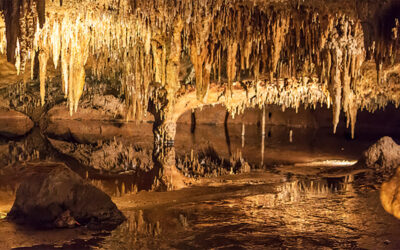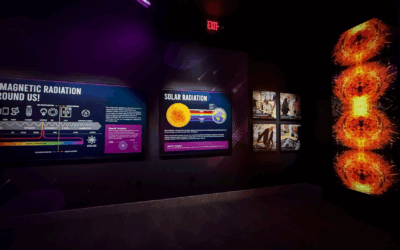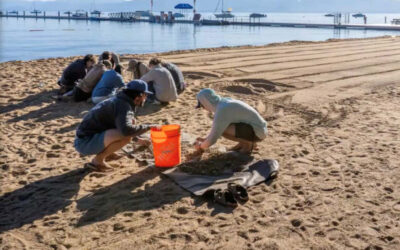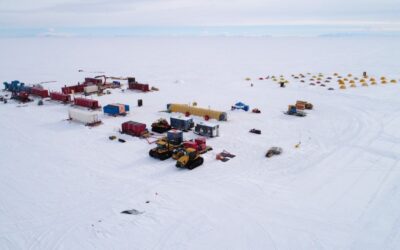News & Announcements
Working to Solve our Most Challenging Environmental Problems
DRI’s research calls on the expertise and methods of scientists from multiple scientific disciplines. More than 600 highly-skilled scientists, engineers, technicians, students, and staff work collaboratively within and across three research divisions, focused on understanding and answering critical science questions about global climate change, water quality and availability, air quality, the sustainability of desert lands, life in extreme environments, education, and more.
New Study Offers a Glimpse Into 230,000 Years of Climate and Landscape Shifts in the Southwest
Atmospheric dust plays an important role in the way Earth absorbs and reflects sunlight, impacting the global climate, cloud formation, and precipitation. Much of this dust comes from the continuous reshaping of Earth’s surface through the erosion of rocks and sediments, and understanding how this process has shaped landscapes can help us decipher our planet’s history – and its future. Although an ephemeral phenomenon by nature, dust emissions through time can be depicted through natural archives like lake sediment cores. In a new study, scientists examine one such record to peer 230,000 years into the past of the American Southwest.
Annual Awards Presented to DRI Faculty and Staff at 2025 Celebration of Science
DRI’s annual awards and recognition ceremonies were held at our Reno and Las Vegas campuses in October to honor scientists and staff members for their achievements. Along with the below awardees, several faculty and staff were recognized for their long-term service to the institute. DRI prides itself on fostering a fulfilling workplace that builds internal community and inspires scientific discovery.
Household Dryers Are Significant Sources of Microfiber Pollution, Study Finds
The fabrics that fill our homes, from natural cotton towels and bedsheets, to clothes produced with synthetic materials, produce microscopic fibers as they break down over time. Previous research has shown that household washers collect and release these microfibers into the environment, and now a new study uses citizen science to demonstrate how dryer vents also produce microfibers under normal household use.
DRI Recognizes Ashley Cornish as the 2025 Peter B. Wagner Memorial Award Winner for Women in Atmospheric Sciences
DRI is pleased to announce that the 27th annual Peter B. Wagner Memorial Award for Women in Atmospheric Sciences has been awarded to Ashley Cornish of the University of Georgia. The Peter B. Wagner Memorial Award for Women in Atmospheric Sciences is an annual competition recognizing the published works of women pursuing a master’s or Ph.D. in the atmospheric sciences or any related program at a university in the United States. The award is presented to women graduate students with outstanding academic publications and includes a $1,500 prize. This award has been presented annually by DRI since 1998 and is the only such honor designated for graduate women in the atmospheric sciences in the United States.
New Study Reveals Alarming Groundwater Declines Threatening Nevada’s Ecosystems
DRI’s Dan McEvoy is a researcher with the Western Regional Climate Center, and he recently co-authored a new study showing the declining groundwater levels in Nevada. He worked with scientist Laurel Saito with The Nature Conservancy to address risks and solutions to this groundwater problem.
The aim for the study, published in Hydrological Processes, was to determine risk factors leading to the declining groundwater levels, and propose science-based solutions for groundwater dependent ecosystems (GDEs).
Scientists Successfully Recreate Wildfire-Induced Thunderstorms in Earth System Models for the First Time
The breakthrough enhances scientific understanding of the dangerous storms and their long-term impacts on the climate. The research, published September 25th in Geophysical Research Letters, represents the first successful simulation of these wildfire-induced storms, known as pyrocumulonimbus clouds, within an Earth system model. Led by DRI scientist Ziming Ke, the study successfully reproduced the observed timing, height, and strength of the Creek Fire’s thunderhead – one of the largest known pyrocumulonimbus clouds seen in the U.S., according to NASA.
NSF Grant Awarded to Research the Chemistry of Post-fire Soil Water Repellency
The research will investigate how the chemical composition of post-fire soils is linked with soil water repellency and reflectance. A significant knowledge gap exists in understanding the post-fire soil chemical processes that lead to soil water repellency and, consequently, increase the risk of post-fire hazards such as floods and landslides.
NSHE Secures $750,000 NASA EPSCoR Grant for Research into Underground Ecosystems That Could Inform the Search for Life Beyond Earth
The Nevada System of Higher Education (NSHE) has secured a $750,000 grant from NASA’s Established Program to Stimulate Competitive Research (EPSCoR) to study unique underground ecosystems powered by radiation instead of sunlight. The findings could help guide NASA’s search for life beneath the surfaces of Mars and icy worlds elsewhere in the solar system.
Keep Tahoe Blue, The Tyre Collective, and DRI launch innovative pilot program to protect Lake Tahoe’s air and water
Today, Keep Tahoe Blue, The Tyre Collective, and Desert Research Institute (DRI) announced a groundbreaking collaboration with the Emerald Bay Shuttle and its operator, Downtowner, that brings together science, technology, and alternative transportation to protect Lake Tahoe’s world-renowned water clarity. The pilot program employs The Tyre Collective’s proprietary technology — discrete, compact devices affixed to a vehicle’s undercarriage — to capture harmful tire wear particles directly at the wheel.
DRI, Atomic Museum Launch Free Field Trip Program Titled “Exploring the Invisible” for Grades 6-12
DRI, in partnership with the Atomic Museum, announces an innovative and accessible field trip program titled “Exploring the Invisible: A Hands-On Journey into Radiation Science.” Designed to ignite curiosity in science, technology, engineering and mathematics (STEM) as well as connect students to Nevada’s rich history, the field trip includes free admission and transportation for participants.
DRI Internships Offer TMCC Students Insight Into Science Careers
This summer, DRI brought eighteen students from Truckee Meadows Community College (TMCC) to our Reno campus for a paid, immersive research experience. Over the course of the ten week program, students worked under the mentorship of DRI faculty members to learn about the process of using scientific research to solve real-world problems. This unique internship program welcomes all students, not only those pursuing majors in science.
Hidden Life Beneath Antarctic Ice: Microbial Diversity and Survival Strategies Revealed in Mercer Subglacial Lake
Hundreds of lakes exist beneath the Antarctic ice sheet, and very few have ever been explored by scientists. Now, an international research team has published their findings from an ambitious effort to drill over 1,000 meters into the ice to sample the life hidden in one known as Mercer Subglacial Lake. The project, referred to as the Subglacial Antarctic Lake Scientific Access (SALSA) project, was documented in detail for the film The Lake at the Bottom of the World.
